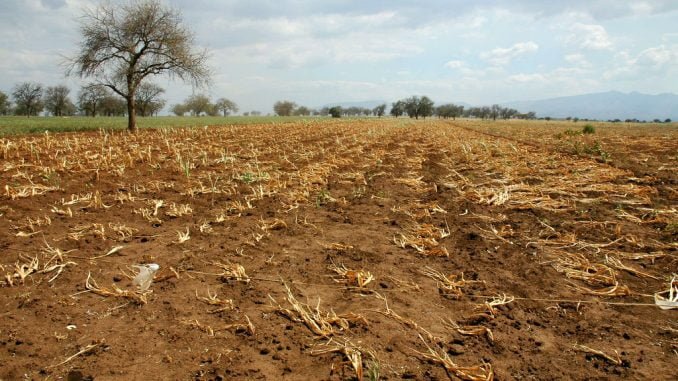
Increased pressures on natural resources, rising inequality and the effects of climate change are placing global food security in jeopardy, the UN Food and Agriculture Organization (FAO) warns.
FAO says unless countries make additional investments in their food systems, they will not meet the global goal of ending extreme hunger by 2030, the year by which the new Sustainable Development Goals (SDG) agenda has targeted the eradication of chronic food insecurity and malnutrition.
The warning is contained in the agency’s latest report ‘The Future of Food and Agriculture’ launched on Wednesday outlining trends and challenges affecting future food production.
FAO Director-General José Graziano da Silva says that although very real and significant progress in reducing global hunger has been achieved over the past 30 years, “expanding food production and economic growth have often come at a heavy cost to the natural environment…”Almost one half of the forests that once covered the Earth are now gone. Groundwater sources are being depleted rapidly. Biodiversity has been deeply eroded,” he says.
“Without additional efforts to promote pro-poor development, reduce inequalities and protect vulnerable people, more than 600 million people would still be undernourished in 2030,” it says. In fact, the current rate of progress would not even be enough to eradicate hunger by 2050.
Lorenzo Bellu is a senior economist with FAO and head of its Global Perspective Studies Unit.
The UN agency is advocating for a shift to more sustainable food systems that make more efficient use of land, water and other inputs, and for sharply reducing the use of fossil fuels in agriculture. Reducing fossil fuel dependency will also help cut agricultural green-house gas emissions, conserve biodiversity, and reduce waste, it added.
“High-input, resource-intensive farming systems, which have caused massive deforestation, water scarcities, soil depletion and high levels of greenhouse gas emissions, cannot deliver sustainable food and agricultural production,” adds the report.
To tackle these and the other challenges outlined in the report, “business-as-usual” is not an option, The Future of Food and Agriculture argues.
– Uganda Radio Network



